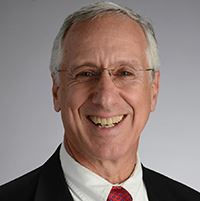The SDPA Addictions Committee
and APA Division 50 (Addiction Psychology)
Learn more about CBT for addictive behaviors
and earn 3 free APA CE credits
To sign up and receive a copy of the chapter, please contactSusie.Lee@practicalrecovery.com (858-546-1100) by June 12. Upon completion of the chapter, we will make the evaluation and post-test available to you for a 12-hour window, so that you may complete them for final credit.
Cognitive-Behavioral Therapy (CBTs) is consistently referred to as "evidence-based" or "empirically supported." However, even the most experienced and skillful cognitive-behavioral therapists understand from experience that CBT for addictive behaviors doesn't always work. This is an invitation to learn more about CBT (by reading a chapter and attending an online mini-workshop), and receive three credits for doing so.
The purpose of these two activities (the reading and mini-workshop) is to focus on CBT processes and content. We discuss structure, collaboration, case conceptualization, psychoeducation, and techniques, as well as potential problems that often occur in each of these areas. In the mini-workshop, we specifically identify common problems in the provision of CBT, and we consider various potential reasons for treatment failure without blaming the patient.
Again, this is a 2-part program. Interested members of SDPA can read a chapter on CBT for addictions, take a brief (10-item) post-test, complete an evaluation, and earn one APA CE Credit. However, in order to receive credit for this part of the program, all activities (reading, post-test, and evaluation) must be completed by Friday, June 19.
Then, on Saturday June 20 (10:00 am - 12:00 pm), members of SDPA can participate in a mini-workshop on, “What to do when CBT doesn’t work.” Participation in this activity, followed by completion of an evaluation, will earn participants two additional APA CE credits.
Please note that you have the option of completing either one of these activities (without completing the other), for 1 or 2 credits each.
The following are the objectives of this 2-part program:
CHAPTER READING
Advances in Cognitive-Behavioral Therapy (CBT) for
Substance Use Disorders and Addictive Behaviors (Liese & Tripp, 2018)
Learning Objectives
1.
Participants will be able to explain the addiction syndrome model of addiction
2.
Participants will be able to graphically construct the basic CBT model of addictions
3.
Participants will be able to explain similarities and differences between individual and group CBT for addictions
MINI-WORKSHOP
What to Consider when Cognitive-Behavioral Therapy (CBT) Isn't Working
Learning Objectives
1.
Participants will be able to list and describe five essential components of CBT
2.
Participants will be able to list and describe at least two therapist factors, two patient factors, and two relationship factors that may impact the effectiveness of CBT
3.
Participants will be able to explain the meaning of “alliance rupture” and list at least two alliance rupture markers.

Bruce S. Liese, PhD, ABPP is Professor of Family Medicine and Psychiatry and Clinical Director of the Cofrin Logan Center for Addiction Research and Treatment at the University of Kansas. He has taught numerous courses and workshops on psychotherapy and evidence-based practice, and he has supervised hundreds of psychotherapy trainees. Dr. Liese has more than 75 publications and he has co-authored two texts with Dr. Aaron Beck. In 2015 Dr. Liese received the Distinguished Career Contributions to Education and Training award from APA Division 50 as recognition for his excellence in teaching and his deep commitment to education.
Procedures for receiving APA CE credit
As noted above, SDPA members can earn 0-3 credits for participating in this program. Advance registration is necessary, the readings (including evals and post-tests) must be complete by June 19, and the mini-workshop will take place on June 20, 10:00 – noon.